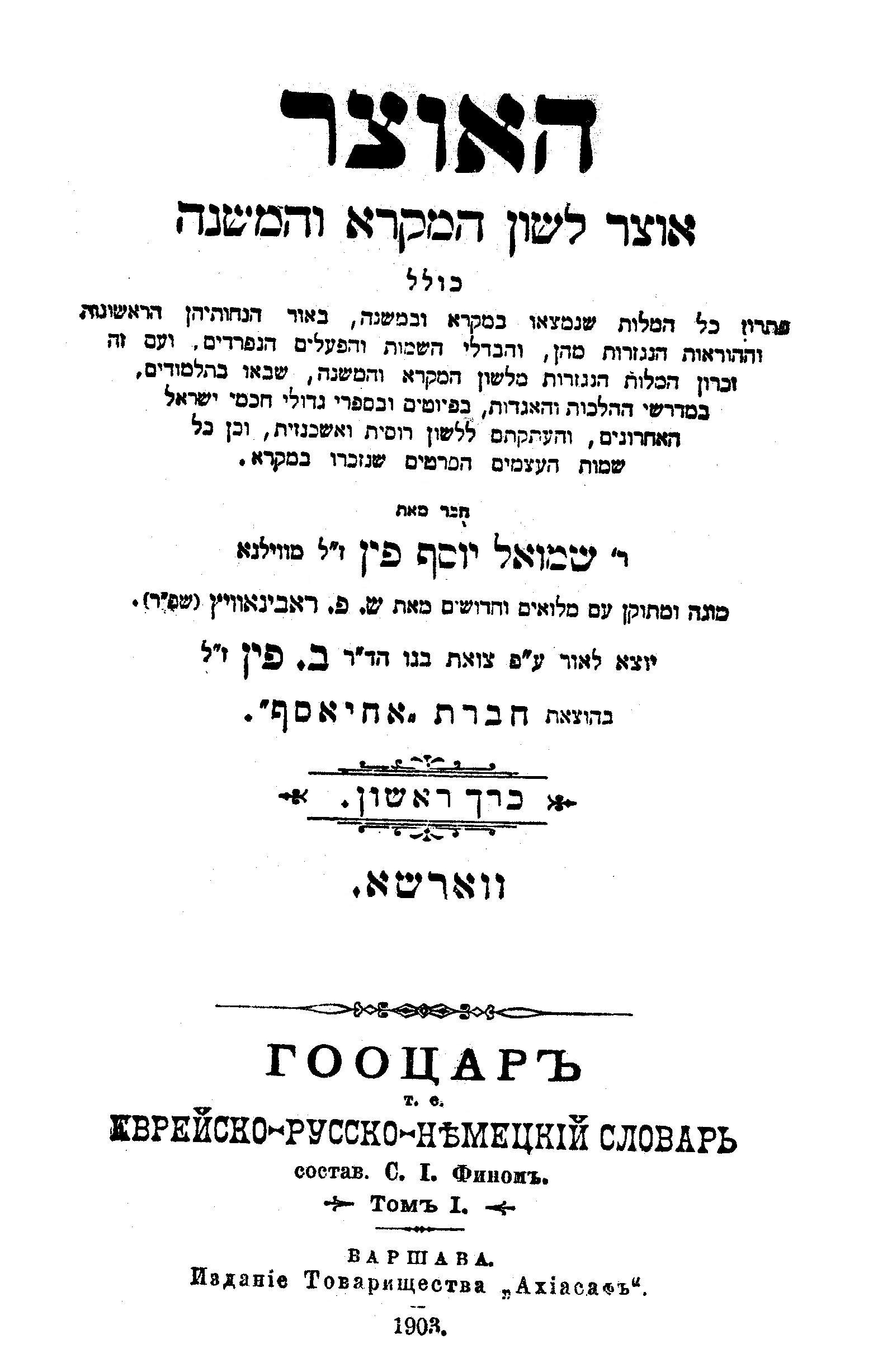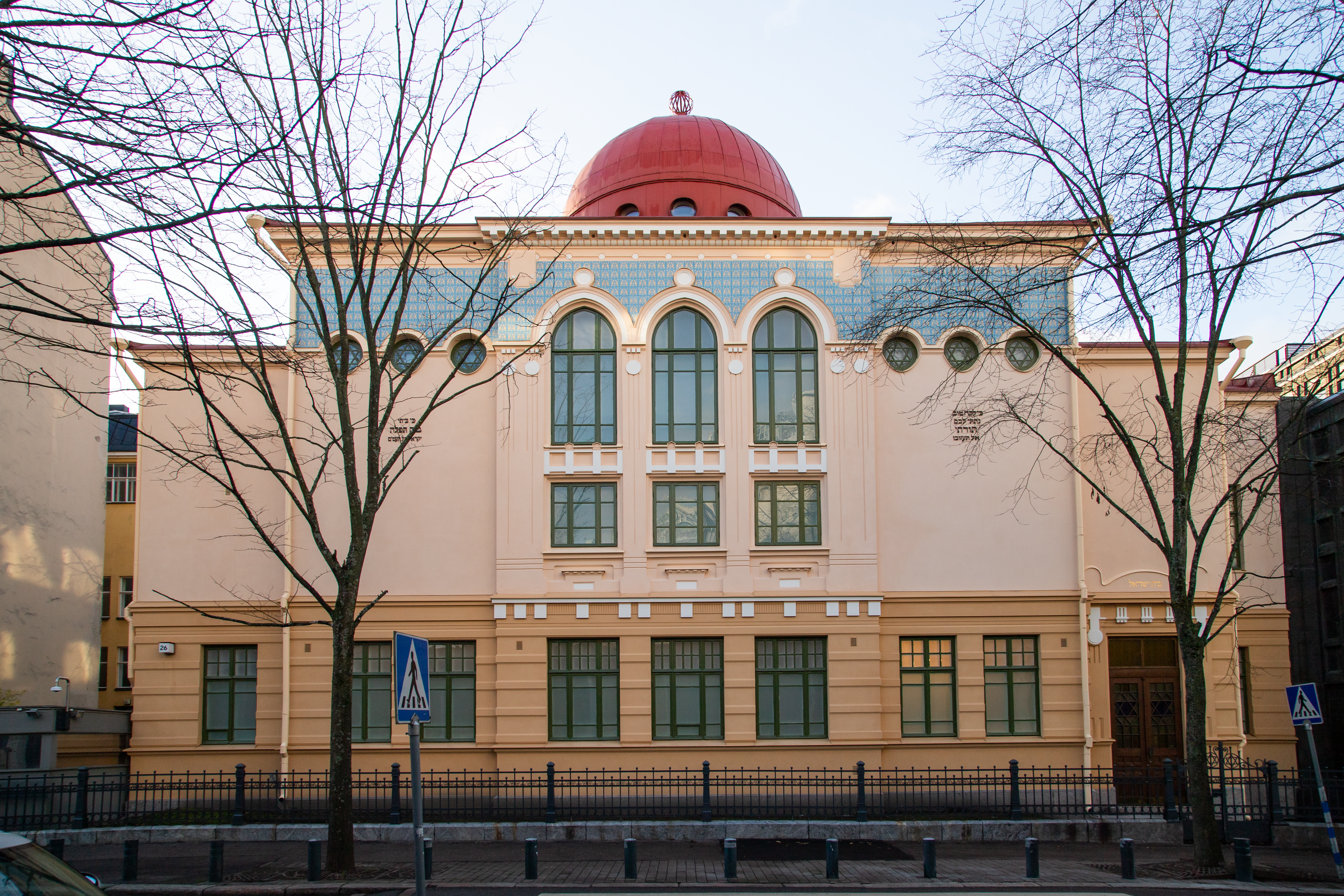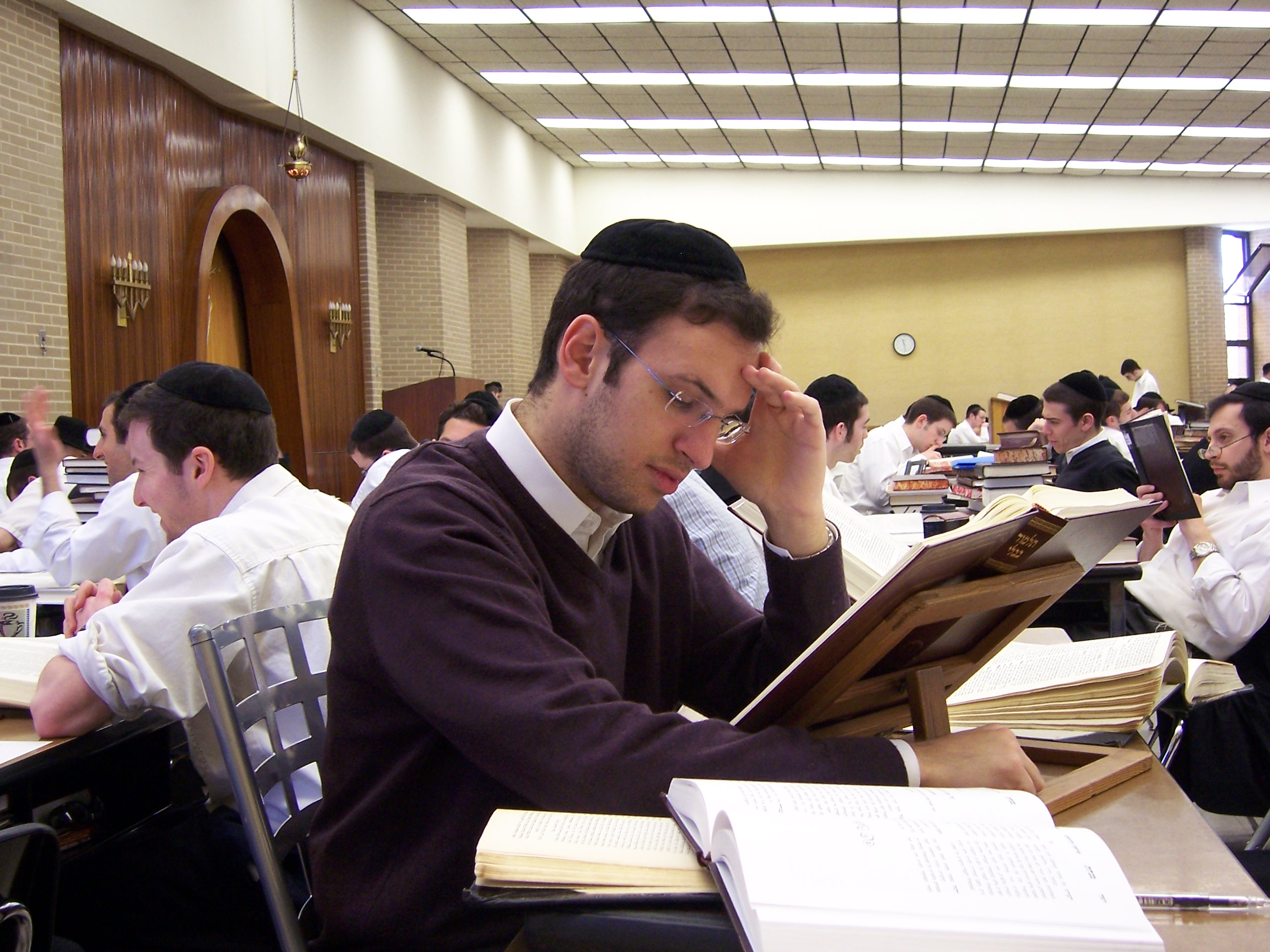|
Jonas Fränkel
Joseph Jonas Fränckel (1773 in Breslau – January 27, 1846 in Breslau) was a German Jewish businessman, banker and philanthropist. He is best known for having willed the funds for the establishment of the " Jewish Theological Seminary Fraenkel'sche Stiftung" of Breslau, the first modern rabbinical seminary in Central Europe, and the model for similar colleges set up in Europe and the United States. Biography Frankel was the son of Joel Wolf, and the grandson of David Fränkel, the author of '' Korban 'Edah.'' Owing to his great commercial ability he rose from extreme poverty to affluence, and became one of the leading bankers of Breslau. As an acknowledgment of the services rendered by him in the development of commerce and industry in Germany, the Prussian government awarded him the title of ''Kommerzienrath''. Notwithstanding his numerous occupations, Fränkel was an indefatigable communal worker. He was the director of many charitable institutions, to the support of which ... [...More Info...] [...Related Items...] OR: [Wikipedia] [Google] [Baidu] |
Fränkel
Fränkel (or Fraenkel) is a surname. Notable people with the surname include: * Abraham Fraenkel (1891–1965), German-Israeli mathematician, known for Zermelo–Fraenkel set theory * Albert Fränkel (1848–1916), German physician * Aviezri Fraenkel (born 1929), Israeli mathematician * Baruch Fränkel-Teomim (1760–1828), rabbi, Talmudist * David ben Naphtali Fränkel (c. 1704–1762), German rabbi * Eduard Fraenkel (1888–1965), German-English classical scholar * Ernst Fränkel (physician) (1844–1921), German gynaecologist * Ernst Fraenkel (linguist) (1881–1957), German linguist * Ernst Fraenkel (political scientist) (1898–1975), German political scientist * Fränkel (born 2000), Canadian singer * Gottfried S. Fraenkel (1901–1984), German-American entomologist * Hermann Fränkel (1888–1977), German-American classicist * Heinz Fraenkel-Conrat (1910–1999), German biochemist * Iwan Fränkel (born 1941), Surinamese footballer * Jonas Fränkel (1773–1846), German ... [...More Info...] [...Related Items...] OR: [Wikipedia] [Google] [Baidu] |
18th-century German Jews
The 18th century lasted from 1 January 1701 (represented by the Roman numerals MDCCI) to 31 December 1800 (MDCCC). During the 18th century, elements of Enlightenment thinking culminated in the Atlantic Revolutions. Revolutions began to challenge the legitimacy of monarchical and aristocratic power structures. The Industrial Revolution began mid-century, leading to radical changes in human society and the environment. The European colonization of the Americas and other parts of the world intensified and associated mass migrations of people grew in size as part of the Age of Sail. During the century, slave trading expanded across the shores of the Atlantic Ocean, while declining in Russia and China. Western historians have occasionally defined the 18th century otherwise for the purposes of their work. For example, the "short" 18th century may be defined as 1715–1789, denoting the period of time between the death of Louis XIV of France and the start of the French Revolution, ... [...More Info...] [...Related Items...] OR: [Wikipedia] [Google] [Baidu] |
German Bankers
German(s) may refer to: * Germany, the country of the Germans and German things **Germania (Roman era) * Germans, citizens of Germany, people of German ancestry, or native speakers of the German language ** For citizenship in Germany, see also German nationality law **Germanic peoples (Roman era) * German diaspora * German language * German cuisine, traditional foods of Germany People * German (given name) * German (surname) * Germán, a Spanish name Places * German (parish), Isle of Man * German, Albania, or Gërmej * German, Bulgaria * German, Iran * German, North Macedonia * German, New York, U.S. * Agios Germanos, Greece Other uses * German (mythology), a South Slavic mythological being * Germans (band), a Canadian rock band * "German" (song), a 2019 song by No Money Enterprise * ''The German'', a 2008 short film * "The Germans", an episode of ''Fawlty Towers'' * ''The German'', a nickname for Congolese rebel André Kisase Ngandu See also * Germanic (di ... [...More Info...] [...Related Items...] OR: [Wikipedia] [Google] [Baidu] |
1846 Deaths
Events January–March * January 5 – The United States House of Representatives votes to stop sharing the Oregon Country with the United Kingdom of Great Britain and Ireland, United Kingdom. * January 13 – The Milan–Venice railway's bridge, over the Venetian Lagoon between Mestre and Venice in Italy, opens, the world's longest since 1151. * January 23 – Ahmad I ibn Mustafa, Bey of Tunis, declares the legal abolition of slavery in Tunisia. * February 4 – Led by Brigham Young, many Mormons in the U.S. begin their migration west from Nauvoo, Illinois, to the Great Salt Lake in what becomes Utah. * February 10 – First Anglo-Sikh war: Battle of Sobraon – British forces in India defeat the Sikhs. * February 18 – The Galician Peasant Uprising of 1846 begins in Austria. * February 19 – Texas annexation: United States president James K. Polk's annexation of the Republic of Texas is finalized by Texas president Anson Jones in a formal ceremony of transfer of sover ... [...More Info...] [...Related Items...] OR: [Wikipedia] [Google] [Baidu] |
18th-century Births
The 18th century lasted from 1 January 1701 (represented by the Roman numerals MDCCI) to 31 December 1800 (MDCCC). During the 18th century, elements of Enlightenment thinking culminated in the Atlantic Revolutions. Revolutions began to challenge the legitimacy of monarchical and aristocratic power structures. The Industrial Revolution began mid-century, leading to radical changes in human society and the environment. The European colonization of the Americas and other parts of the world intensified and associated mass migrations of people grew in size as part of the Age of Sail. During the century, slave trading expanded across the shores of the Atlantic Ocean, while declining in Russia and China. Western historians have occasionally defined the 18th century otherwise for the purposes of their work. For example, the "short" 18th century may be defined as 1715–1789, denoting the period of time between the death of Louis XIV of France and the start of the French Revol ... [...More Info...] [...Related Items...] OR: [Wikipedia] [Google] [Baidu] |
Samuel Joseph Fuenn
Samuel Joseph Fuenn (; 15 October 1818 – 11 January 1891), also known as Rashi Fuenn () and Rashif (), was a Lithuanian Hebrew writer, scholar, printer, and editor. He was a leading figure of the eastern European Haskalah, and an early member of Ḥovevei Zion. Biography Fuenn was born in Vilna, Russian Empire, the son of merchant and Torah scholar Yitsḥak Aizik Fuenn of Grodno. Though he received a traditional religious education until the age of 17, he also acquired an extensive general knowledge of German literature and other secular subjects, and became proficient in Russian, French, Latin, Polish, and English. He afterwards joined Vilna's circle of young '' maskilim''. In 1848 the government appointed him teacher of Hebrew and Jewish history in the newly founded rabbinical school of Vilna. Fuenn filled this position with great distinction till 1856, when he resigned. The government then appointed him superintendent of the Jewish public schools in the district of Vil ... [...More Info...] [...Related Items...] OR: [Wikipedia] [Google] [Baidu] |
Rabbinical Seminaries
A Jewish seminary, better known as a rabbinical seminary or rabbinical school, is a Jewish educational institution for the purpose of training rabbis. (In some cases, a "Jewish seminary" may also refer to a cantorial school.) While rabbis have been part of Judaism for centuries, rabbinical seminaries only became distinct institutions in the early 19th century. History Today, rabbinical seminaries differ from other Jewish educational institutions due to the influence of the Haskalah, the Jewish Enlightenment movement. Before this movement, yeshivot granted rabbinical ordination to those who completed an intensive course of study focusing on Talmudic and halakhic literature. The development of rabbinical seminaries was not without controversy as these new institutions were to provide a secular degree alongside rabbinic ordination (''semikha)'', and thus some viewed this as promotion of heresy and assimilation. Examples Some Jewish rabbinical seminaries include those listed below; ... [...More Info...] [...Related Items...] OR: [Wikipedia] [Google] [Baidu] |
Seminary
A seminary, school of theology, theological college, or divinity school is an educational institution for educating students (sometimes called seminarians) in scripture and theology, generally to prepare them for ordination to serve as clergy, in academics, or mostly in Christian ministry. The English word is taken from , translated as 'seed-bed', an image taken from the Council of Trent document which called for the first modern seminaries. In the United States, the term is currently used for graduate-level theological institutions, but historically it was used for high schools. History The establishment of seminaries in modern times resulted from Roman Catholic reforms of the Counter-Reformation after the Council of Trent. These Tridentine seminaries placed great emphasis on spiritual formation and personal discipline as well as the study, first of philosophy as a base, and, then, as the final crown, theology. The oldest Catholic seminary in the United States is ... [...More Info...] [...Related Items...] OR: [Wikipedia] [Google] [Baidu] |
Synagogue
A synagogue, also called a shul or a temple, is a place of worship for Jews and Samaritans. It is a place for prayer (the main sanctuary and sometimes smaller chapels) where Jews attend religious services or special ceremonies such as weddings, bar and bat mitzvahs, choir performances, and children's plays. They often also have rooms for study, social halls, administrative and charitable offices, classrooms for religious and Hebrew studies, and many places to sit and congregate. They often display commemorative, historic, or modern artwork alongside items of Jewish historical significance or history about the synagogue itself. Synagogues are buildings used for Jewish prayer, study, assembly, and reading of the Torah. The Torah (Pentateuch or Five Books of Moses) is traditionally read in its entirety over a period of a year in weekly portions during services, or in some synagogues on a triennial cycle. However, the edifice of a synagogue as such is not essential for hol ... [...More Info...] [...Related Items...] OR: [Wikipedia] [Google] [Baidu] |
Banker
A bank is a financial institution that accepts Deposit account, deposits from the public and creates a demand deposit while simultaneously making loans. Lending activities can be directly performed by the bank or indirectly through capital markets. As banks play an important role in financial stability and the economy of a country, most jurisdictions exercise a high degree of Bank regulation, regulation over banks. Most countries have institutionalized a system known as fractional-reserve banking, under which banks hold liquid assets equal to only a portion of their current liabilities. In addition to other regulations intended to ensure accounting liquidity, liquidity, banks are generally subject to minimum capital requirements based on an international set of capital standards, the Basel Accords. Banking in its modern sense evolved in the fourteenth century in the prosperous cities of Renaissance Italy but, in many ways, functioned as a continuation of ideas and concepts o ... [...More Info...] [...Related Items...] OR: [Wikipedia] [Google] [Baidu] |
Bet Ha-midrash
A ''beth midrash'' (, "house of learning"; : ''batei midrash''), also ''beis medrash'' or ''beit midrash'', is a hall dedicated for Torah study, often translated as a "study hall". It is distinct from a synagogue (''beth knesseth''), although the two are often coextensive. In Yiddish the ''beth midrash'' may be referred to as a ''zal'', i.e. "hall". ''Beis midrash'' can also refer to a yeshiva gedolah, the undergraduate-level program in Orthodoxy, for boys over 12th grade. The Arabic term "madrasah" is derived from the same Semitic root, and refers to any type of educational institution. The root דרש means "to seek nowledge and is then generalized to mean "expound". History Early rabbinic literature, including the Mishnah, makes mention of the ''beth midrash'' as an institution distinct from the '' beth din'' and Sanhedrin. It was meant as a place of Torah study and interpretation, as well as the development of ''halakha'' (the practical application of the Jewish Law). ... [...More Info...] [...Related Items...] OR: [Wikipedia] [Google] [Baidu] |






